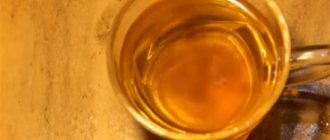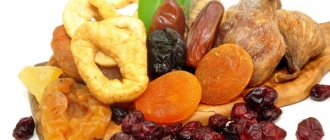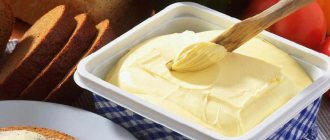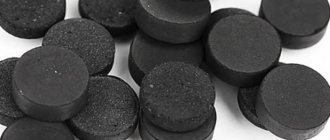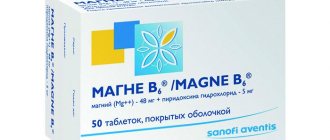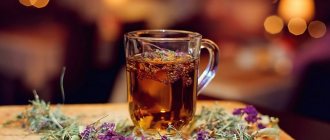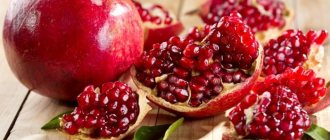Some mothers are concerned about the question: is it possible to drink beer while breastfeeding? A woman should eat a healthy and balanced diet in accordance with the required restrictions. This is due to the fact that the child’s digestive system is sensitive to the mother’s nutrition. Breast milk is rich in essential elements and vitamins that ensure proper functioning of the gastrointestinal tract. At this time, the baby’s body does not secrete substances that can break down alcohol-containing products. For this reason, experts prohibit drinking alcohol. Today you can find non-alcoholic beer on store shelves. Is it safe for the baby? We'll figure this out today.
Composition and properties
Non-alcoholic beer was invented in America during the height of Prohibition, when breweries were looking for ways to stay afloat. The new product quickly gained popularity and remained on sale even after the restrictions were lifted.
Since then, the production method and recipe of the drink have changed significantly. If earlier beer was brewed from hops, malt and water, leaving them to ferment for a couple of months, now this method is not profitable. Mass production requires quick solutions, so new components appear in the drink - accelerating fermentation and extending shelf life. Naturally, the beneficial properties of beer are now “compensated” by the effects of these not entirely healthy additives.
Common components and harmful additives found in the drink:
- malt extract. Malt concentrate from barley, which shortens the fermentation period;
- hop product – crushed and compressed hop cones, which are stored in this form longer;
- Glucose-fruit syrups are sugar substitutes that accelerate the fermentation process. They contain a lot of calories and quickly accumulate, creating fat deposits;
- “identical to natural” flavoring. Gives the drink a characteristic beer smell;
- maltose molasses - a product similar to kvass wort, releases a lot of sugar;
- sodium benzoate is a food preservative that can cause allergies;
- cobalt – stabilizes foam, harmful to the heart and gastrointestinal tract.
Of course, when choosing between a regular and a soft drink, it is better for a nursing mother to choose the second option. It can be drunk in moderation, but before purchasing it is advisable to carefully study the composition in order to minimize the negative impact on the health of mother and baby.
Harmful effects for women
It is a mistake to think that drinking beer during breastfeeding does not affect the baby’s health. Some believe that an incomplete percentage of alcohol is harmless, so they abuse such alcoholic beverages in unlimited quantities. This has the following possible consequences for the child:
- constant drowsiness;
- uninterrupted sleep all night;
- light weight;
- inhibited development;
- respiratory depression;
- liver destruction;
- increased heart rate;
- problems with the gastrointestinal tract;
- alcohol addiction.
Alcohol enters the baby's body with the help of milk quite quickly, even if the mother simply drinks non-alcoholic beer. It is still difficult for children at this age to resist the harmful effects of ethanol.
During lactation, women can drink non-alcoholic beer only in minimal doses, subject to certain rules. Then the child will be safe and the mother’s desire will be satisfied.
Non-alcoholic beer was first sold in America. At that time it was produced from hops, natural malt and ordinary water. They were mixed and left for a couple of months to ferment, at the end of the period a high-quality product was obtained with an alcohol content of only half a percent.
Today, in breweries, the emphasis is on mass production, so the procedure for producing a soft drink has changed significantly. All stages take place at a fast pace, and the reduction in the proportion of alcohol occurs using special technologies.
As a result, non-alcoholic beer during breastfeeding must be consumed with an alcohol content of 0.3–1.5%.
We suggest you read: How often can you drink alcohol without harm?
The shelf life of the product is increased by adding artificial ingredients:
- Malt extract. Allows you to significantly speed up production stages.
- Hop product. Replacement of natural hops, can be stored for a long time.
- Glucose-fruit mixture. High-calorie sweetener.
- Maltose molasses. Reduces product preparation time.
- Flavoring Used to create the aroma characteristic of the drink.
- Cobalt. Stabilizes the formation of foam, impairs the functioning of the heart muscle and gastrointestinal tract.
- Sodium benzonate. Improves the color of the liquid, extends shelf life, causes allergies, and can change the structure of DNA.
When determining whether non-alcoholic beer is suitable for breastfeeding, you need to thoroughly study the label and give preference to a quality product.
If there is a desire for a nursing mother to drink without negative effects on the child, then you can look for a drink without alcohol in a beer store. This product is produced using newfangled methods, and therefore has a high cost. It is better for nursing mothers to avoid products with artificial additives altogether.
Does it contain alcohol
Non-alcoholic beer, contrary to its name, still contains alcohol. The right to be called non-alcoholic is given by a significantly reduced amount of alcohol compared to the usual version - 0.3-1.5%.
According to the list of ingredients, non-alcoholic beer is completely identical to regular beer, the amount of alcohol is reduced by artificial methods:
- by evaporation;
- with membrane dialysis;
- by reducing the intensity of fermentation.
Recently, a completely non-alcoholic drink that does not contain ethyl alcohol has begun to appear on the shelves. It is produced using the latest technology, without the addition of alcohols at the initial stage of fermentation.
If you want to minimize the risk for your baby, it is better to drink beer exclusively in its non-alcoholic form and not too often.
https://www.youtube.com/watch?time_continue=50&v=IJKYLsJtQZg
Does it pass into breast milk?
The lactation period is very important for every mother - she has to carefully monitor her diet in order to prevent components that are dangerous for the baby from getting into the milk. Substances found in beer, including alcohol, quickly end up in milk, and with it in the baby’s body.
Of course, a mother who is on breastfeeding can sometimes drink a small glass after feeding; it will not harm the baby. Most likely, the blood and milk will be cleared of alcohol before the next application. But with systematic and copious consumption of beer, even non-alcoholic, unpleasant consequences can occur:
- diuretic effect promotes potassium loss;
- the production of male hormones increases;
- less milk is produced;
- headaches occur regularly;
- You want to eat more often, which results in weight gain.
That is why a nursing mother should drink non-alcoholic beer very carefully, not forgetting the consequences.
Harm of intoxicating drink
With all the possible advantages and comparative safety of light foamy beer, the question remains open: is it possible for a nursing mother to drink non-alcoholic beer?
Breastfeeding experts have different views on this drink, so the final decision remains with the woman. But you should remember that everything you eat and drink during lactation immediately goes into your milk.
Why is beer bad for mom?
Often the drink provokes a severe headache. Due to the diuretic effect of the product, dehydration may occur and lactation may decrease if consumed in unlimited quantities.
The drink itself is low-calorie - 100 ml contains 29 kcal. But after consuming it, your appetite increases, and if you want to get rid of extra pounds, then it is definitely contraindicated for you.
Another danger of non-alcoholic beer for nursing mothers is that with frequent use in a woman’s body, the amount of male sex hormones increases, which will provoke intensive growth of facial hair and deepening of the voice.
Why is beer bad for your baby?
A small amount of alcohol is not dangerous for mom, but if you drink beer too often, your baby will get alcohol poisoning. The child will become lethargic, gain weight poorly, begin to lag behind in development, and get sick often.
If you consume even a non-alcoholic foam product every day, it can be fatal for a baby, since the baby’s body does not yet have enzymes that can break down alcohol.
Basic rules for drinking beer during lactation
Alcohol from non-alcoholic beer is eliminated from the body within 1.5-2 hours, all this time the milk will contain a residual amount of ethanol, but breastfeeding is allowed only 12-24 hours after drinking the drink. If you weigh a little, the elimination process will take longer.
If you decide to drink non-alcoholic beer while breastfeeding, follow these simple rules:
- Express milk so that you can feed your baby several times.
- You should not drink any beer if your baby is under three months old.
- You can drink no more than 500 ml of beer per day, but it is better to limit yourself to 250 ml once a week.
- Immediately after drinking beer, drink several glasses of clean water to prevent dehydration.
- Do not eat crackers, chips and other junk food that you often eat with beer.
- If your child shows signs of an allergy, completely give up the intoxicating drink for the entire period of lactation, or stop breastfeeding.
Drinking non-alcoholic beer while breastfeeding is a kind of experiment on the baby; no one can predict how the baby’s body will react to this drink, and what consequences will arise from this in the future.
How does non-alcoholic beer affect lactation?
Remembering the common myth that beer affects milk supply, many women wonder whether non-alcoholic beer can be used for the same purpose while breastfeeding.
However, they will be disappointed and it’s not even a matter of alcohol content or lack thereof - the myth has long been debunked. It did not arise out of nowhere, of course. Beer containing alcohol affects the production of pituitary hormones, including prolactin, which causes a surge in milk in the mother. However, ethyl alcohol, in addition, reduces the production of oxytocin, which is necessary for milk to pass freely through the ducts and be easily sucked out by the child. As a result, there is a rush of milk, but the baby remains hungry. At the same time, he quickly falls asleep due to the alcohol contained in the milk, and his mother believes that he sleeps from satiety. It has been noticed that children gain weight worse if the mother often drinks drinks containing alcohol, even in small quantities, during lactation.
In any case, breastfeeding a child after drinking is allowed no earlier than 1.5-3 hours later. The exact time depends on the amount of alcohol, how much you drink, mom's weight, and the availability of snacks.
How soon can you feed your baby?
If there is a strong desire to drink beer for a nursing mother, drink it, but observing certain nuances:
- A nursing woman can drink beer with an alcohol content of 0.5–1.5% up to 500 ml at a time;
- Can a nursing mother have beer with an alcohol content of 1.5–6.0% by volume? You can use up to 250 ml at a time in extremely rare situations;
- Before drinking, you need to make sure whether the child is allergic to the components of the drink;
- drinking beer or any other strong drinks is prohibited for the first three months after childbirth;
- you need to feed the child before drinking, after which the procedure is carried out when the alcohol is completely eliminated;
- if after a few sips a woman becomes noticeably drunk, then the question of whether it is possible to drink non-alcoholic beer will have a negative answer, since her body does not have enough elements to absorb the product;
- It is better to drink on a full stomach, since an empty one increases the time for the elimination of harmful substances,
- If after drinking the drink and following all the rules, the baby’s condition worsens, then you will have to abandon the product altogether.
Can breastfeeding mothers drink low ethanol drinks? Of course, it’s possible, but it’s better if it’s kefir or kvass. Beer is allowed to be drunk only in extreme cases and occasionally, avoiding all possibilities of harming the baby’s health. Excessive increases in dosage lead to alcoholism in the mother and various diseases in the child.
Alcohol passes into breast milk as soon as it is absorbed into the blood and remains there until it is completely eliminated from the body. Therefore, mom needs to carefully calculate the period of intoxication, based on her weight and the amount of alcohol she drank.
The average strength of zerovka is 0.5%. Therefore, one liter of such beer contains 5 grams of pure ethanol. This amount is excreted from a woman’s body in an hour to an hour and a half, depending on her weight. To be on the safe side, another 30 minutes should be added to this period - only then can you breastfeed the baby. If the baby is too small to withstand such a gap, the mother should express the required amount of milk into a bottle in advance.
For a more accurate calculation, it is recommended to use a ready-made table. You just need to understand that the time data in it is approximate and may fluctuate depending on individual metabolic characteristics.
| Weight, kg/Volume, l | 0,5 | 1 | 1,5 | 2 | 2,5 | 3 | 3,5 | 4 |
| 40-50 | 1 hour 30 minutes | 3 hours | 4 hours 15 minutes | 5 h. 30 m. | 6:07 am | 7 hours 44 minutes | 8:30 a.m. | 9:50 a.m. |
| 50-60 | 1 hour 10 minutes | 2 hours 20 minutes | 4:01 am | 4 hours 55 minutes | 5 h. 13 m. | 6 hours 25 minutes | 7:03 am | 8:15 a.m. |
| 60-70 | 1 hour 4 minutes | 2 hours 05 minutes | 3 hours 42 minutes | 4 hours | 4 hours 42 minutes | 5 hours 44 minutes | 6 hours 12 minutes | 7 hours 44 minutes |
| 70-80 | 1 hour | 1 hour 40 minutes | 2 hours 50 minutes | 3 hours 33 minutes | 4 hours | 5:05 am | 5 hours 24 minutes | 7 hours |
| 80-90 | 52 m. | 1 hour 12 minutes | 2 hours 07 minutes | 2 hours 54 minutes | 3 hours 40 minutes | 4 hours | 4 hours 49 minutes | 6h 11m |
The World Health Organization recommends breastfeeding until your child reaches two years of age. Not all women are able to limit their harmful periodic weaknesses, therefore, for fear of harming the baby, they completely suppress lactation. Pediatricians say this behavior is wrong. Women can consume a limited amount of non-alcoholic foam once a week. This is better than depriving a child of the best food for him - mother's milk.
If drinking beer cannot be avoided, experts recommend remembering simple rules:
- Set for yourself the maximum allowed dose of alcohol. It should not exceed 350 ml of alcoholic and 500 ml of ethyl alcohol-free beer.
- Drinking on an empty stomach is strictly prohibited! Toxins from the drink will quickly enter the bloodstream, which means they will not bypass breast milk.
- Canned foam is much more harmful than bottled foam, because it contains a large number of preservatives and other chemical additives.
- It is strictly forbidden to mix beer with other alcohol. Especially with strong drinks and wine.
- Minimize reception frequency. Women whose goal is to preserve their own health and the quality of life of their baby should not drink alcohol more than twice a week.
- Feed the baby before drinking the drink. After drinking alcohol, avoid putting the baby to the breast for 3-4 hours. During this time, ethanol is almost completely removed from the milk. These standards are approximate; each person’s body is individual. A big role is played by the health of the kidneys (how quickly they perform work), the quality of the liver, weight, and height. The denser a woman is, the faster the body cleanses itself of harmful substances.
- Prepare expressed milk in advance. There are special containers on sale, but you can use regular jars and bags. At room temperature, milk will remain fresh for 4-7 hours; it will last a day on the refrigerator shelf without losing its benefits, and in the freezer - for a couple of months.
- Strong dark varieties are not for you.
- Take care of the child's safety. Remember that you decided to drink to relax, and not to lose control of yourself. Ask non-drinking relatives or friends to look after your baby.
- If the last time you drank alcohol was a long time ago, listen carefully to your body. After a long break, even a small dose of alcohol can seriously affect the vestibular system and lead to a state of severe intoxication.
Whatever decision a nursing mother makes, she must not justify herself, forget about the possible side effects of alcohol, or underestimate the harm. Doctors advise loving your own body and drinking only high-quality drinks in which natural ingredients prevail over chemicals.
After drinking non-alcoholic beer once, the baby can be put to the breast only after 12 hours.
This creates certain inconveniences, especially if the woman did not experience such restrictions during pregnancy. But the placenta barrier is more reliable than the mammary epithelium. Therefore, in order to completely prevent ethanol, acetaldehyde and acetic acid from entering the baby’s body, measures need to be taken.
- For 3 months after giving birth, it is recommended to completely abstain even from the non-alcoholic option.
- Breast milk is expressed so that there is enough for feedings during these 12 hours. Every mother knows how much her child eats, but it is better to provide a supply.
- Drink high-quality and proven beer.
- The product must be fresh.
- Before drinking, remove gas bubbles from the drink, as they accelerate the absorption of alcohol.
- The maximum dose of the drink is 0.5 liters 2 times a week. It is better to use those varieties that are sold in glass containers, since the product bottled in tins usually contains more preservatives.
- Store-bought snacks should not be consumed as a snack. They contain a large number of spices and flavor enhancers, which can also harm the child.
If all the conditions are met, but after resuming feeding, the child develops redness, itching, bloating, becomes apathetic or, on the contrary, more restless, then further drinking of beer should be abandoned for the entire period of breastfeeding.
If a woman during pregnancy or breastfeeding suddenly has a sudden craving for a drink that has not been observed before, you should not resort to the simplest option to satisfy the need.
We suggest you read: How to stop drinking beer? How can a woman, girl, or man stop drinking beer?
Such cravings may be a manifestation of a lack of a number of nutrients in the body. These are usually vitamins B and D, and there are healthier and safer ways to make up for the deficiency.
To do this, it is recommended that mother include in the diet:
- Whole grain bread and bran bread
- Vegetables and fruits: apples, different varieties of cabbage, carrots and beets.
- Meat and offal.
- Kefir, curdled milk, fermented baked milk and natural yoghurts.
- You can take brewer's yeast preparations.
And you should consult a doctor and do tests that can reliably show a lack of vitamins.
Thus, non-alcoholic beer is an acceptable product during breastfeeding. But by using it, a woman creates additional difficulties for herself. It is necessary to interrupt breastfeeding and express. And then - show increased attention to the baby’s well-being. Each woman must decide for herself whether the pleasure of the drink is worth such effort.
Can nursing mothers have non-alcoholic beer?
There is no consensus among doctors on this issue. Some doctors, and among them the famous pediatrician Komarovsky, are convinced that when breastfeeding, a small amount of a high-quality soft drink will not harm either the mother or the child. The main thing is to monitor the naturalness, composition and choose a drink with a short shelf life in a glass jar. However, even he emphasizes that non-alcoholic beer during breastfeeding is an experiment on a child, and the fewer such experiments there are, the better.
Other doctors are more categorical and argue that a nursing mother should not drink any beer, as it will negatively affect the baby’s health. They are confident that drinking beer during lactation can significantly disrupt the normal physical and mental development of the child.
Ultimately, whether a nursing mother can drink non-alcoholic beer or not, the mother herself has to decide, taking responsibility for the possible consequences for the baby. It is important to remember that even when drinking beer, you can reduce these consequences to a minimum or eliminate them completely, the main thing is to follow proven recommendations.
Beer while breastfeeding: pros and cons
Read also: How to restore lactation - 10 main recommendations
Having heard such “valuable” advice, new mothers rejoice at the opportunity to “kill two birds with one stone” at the same time: treat themselves to the taste of beer forgotten during pregnancy and influence the flow of milk. This zealous desire was fueled by the observations of some scientists who identified a relationship between the consumption of beer drinks and increased lactation. These scientists believe that lactation is increased due to the content of barley and yeast polysaccharide in this low-alcohol drink.
But medical workers are rushing to debunk the myth about the benefits of beer during breastfeeding. And there are quite logical justifications for this:
- When drinking beer drinks, the breasts increase not from the influx of milk, but from the retention of salts and fluid in the tissues of the mammary glands. The amount of milk remains at the same level.
- Beer, like any other alcoholic drink, easily enters the child's body through breast milk. This is fraught not only with colic and bloating, but also with serious poisoning of the child.
- Even a small amount of alcohol is completely eliminated from a woman’s body after 6-7 hours. When breastfeeding, this is quite a long time.
- Beer does not contain any unique vitamins and microelements that are not found in other products that are more suitable for feeding a breastfeeding woman.
Taking into account the above reasons, mothers should think twice before drinking a glass of beer. As a last resort, if the desire is so great, you can allow yourself to drink non-alcoholic beer (in small quantities).
If mothers care exclusively about increasing lactation, then other methods can be used for this purpose. Currently, there are a large number of special herbal decoctions, different types of tea, and products that can quickly increase milk flow.
Hello girls! Today I will tell you how I managed to get in shape, lose 20 kilograms, and finally get rid of the terrible complexes of fat people. I hope you find the information useful!
Do you want to be the first to read our materials? Subscribe to our telegram channel
After the birth of a child, the whole world turns upside down. All once familiar products come under suspicion - will they harm the baby? Everyone knows about the dangers of alcohol, but whether it is possible to drink non-alcoholic beer while breastfeeding is not such a clear-cut question.

